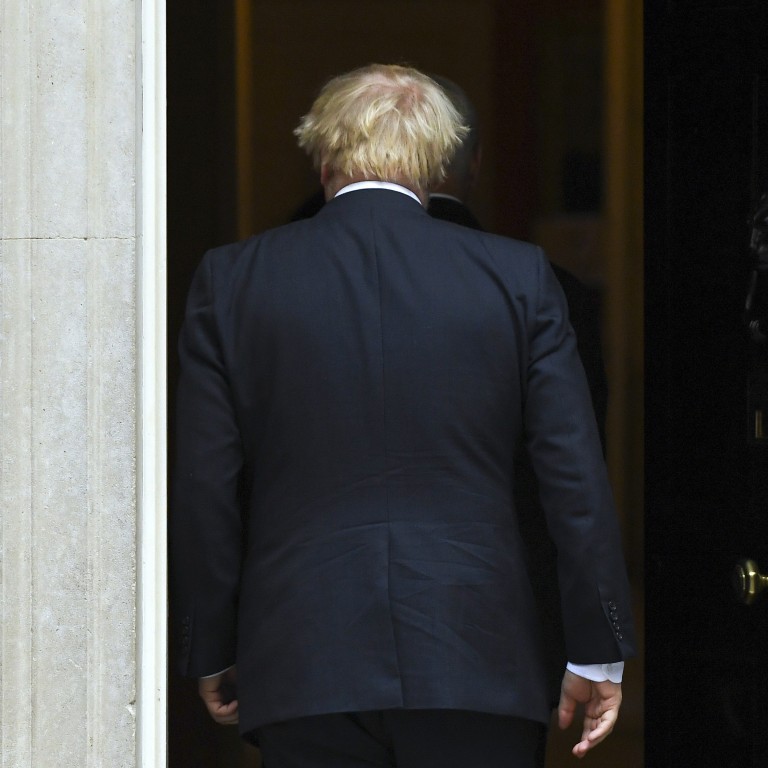
Will Boris Johnson make history to become the UK’s shortest-serving PM?
- If last week was a disaster for Britain’s beleaguered prime minister, this week could be worse
Following one of the most tumultuous weeks of British political history in which he lost his parliamentary majority, Johnson was expected to seek approval from MPs later Monday to call a snap election.
Opposition parties have agreed to vote against his motion, which he would need two thirds of MPs to support to get passed.
Also on Monday, an opposition-led bill blocking a no-deal Brexit that passed through the House of Commons and the House of Lords last week was expected to become law.
It means that if Johnson is unable to secure an agreement with the European Union before its leaders meet on October 19, he will have to ask for an extension to the October 31 deadline of at least three months.
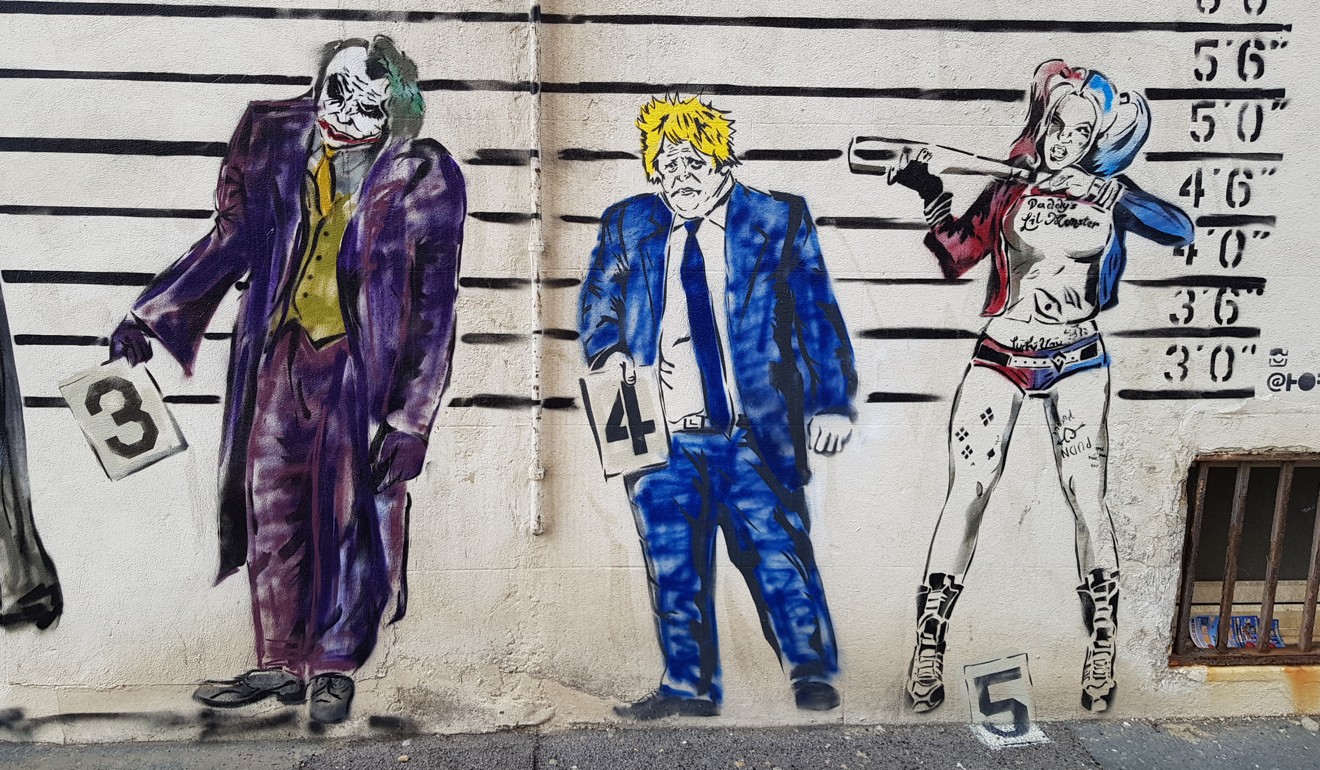
Johnson has vehemently objected to the legislation. He says that, by ruling out a no-deal Brexit, parliament has undermined his hand in negotiations with the EU on a revised pact.
If he stands by his word, then he will have to break the law.
This week is likely to be even rockier for Johnson than the last, his first week in parliament since becoming prime minister in July.
New British PM Boris Johnson’s ruthless purge of enemies before moving into No 10 Downing St
On Tuesday, former Conservative MP Phillip Lee crossed the chamber to join the Liberal Democrats, one of the opposition parties, as Johnson was making a speech – meaning he lost his parliamentary majority of one.
On Wednesday, the government lost by 328 to 301 the first reading of the bill to block a no-deal Brexit as a number of Tory rebels voted with the government.
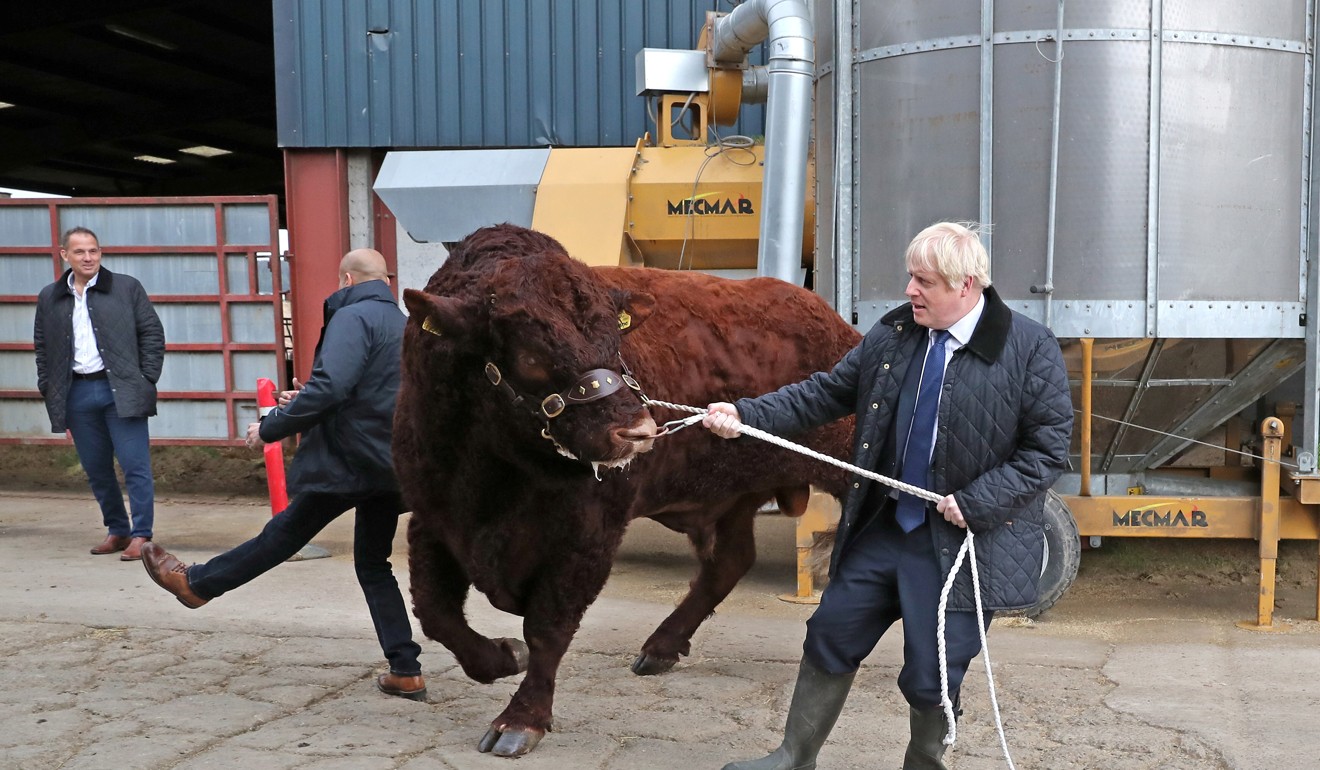
Johnson stripped 21 of them of their Conservative Party membership.
Soames later accused Johnson of “serial dishonesty”.
Johnson, who only last Monday said he did not want a general election, then made a stab at calling for one in parliament, but did not get the two-thirds majority of votes needed.
Israeli PM’s office edits out Benjamin Netanyahu’s gaffe from video after he refers to Boris Johnson as Boris Yeltsin
Opposition parties claimed he wanted the election as a plot to make sure the UK left the EU without a deal.
The news came as Johnson met with US Vice-President Mike Pence, who was in London to offer US support to the UK following a no-deal Brexit.
A beleaguered Johnson, who has promised to replace the 20,000 police culled by Johnson’s predecessor Theresa May, a move he supported as a Conservative MP, then took a photo opportunity surrounded by mainly female police cadets.
The US-presidential style pose went badly when one of the police cadets made to stand to attention as Johnson made his speech, fainted.
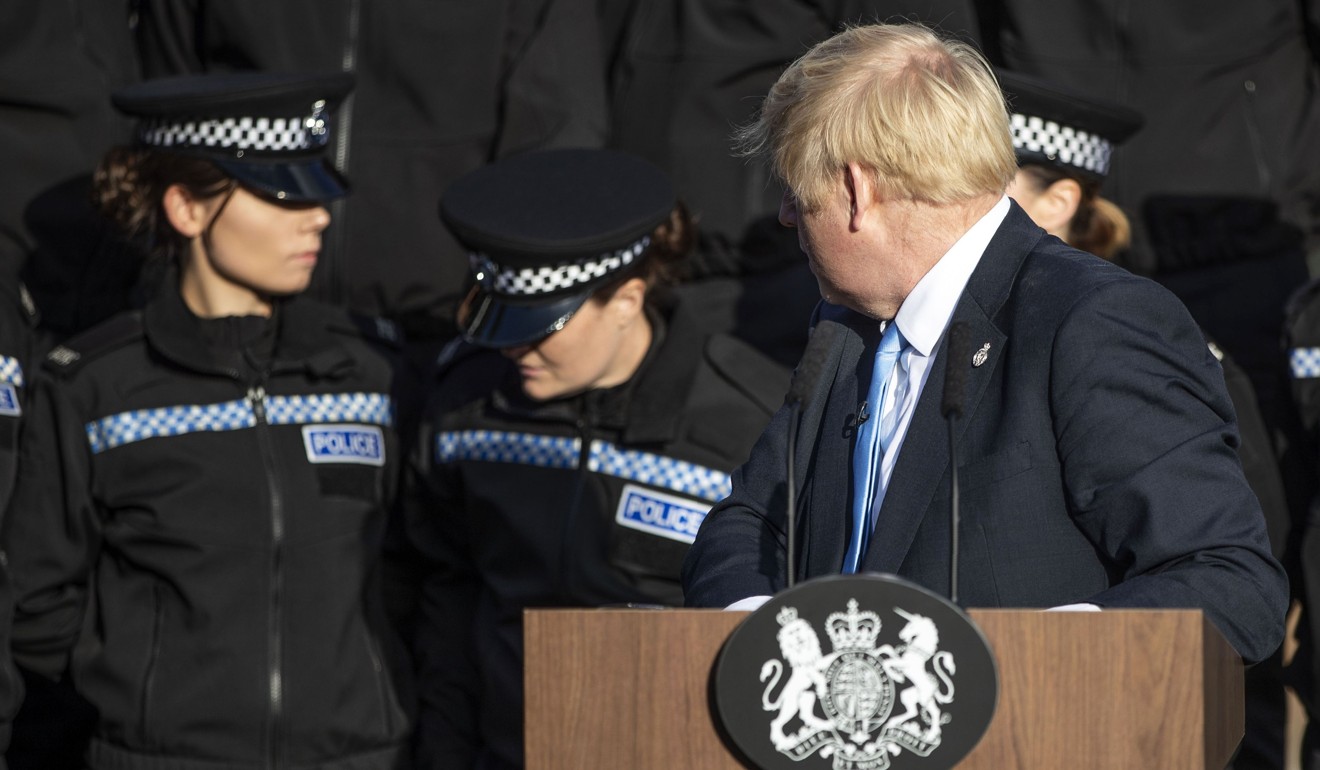
On Friday, just about when things seemed they could not get worse, Johnson was criticised by senior police for using them for political gain by making a speech about Brexit.
Down but not yet out, Johnson now has only a few options left following last week’s sackings - his party ever more divided.
He could try and get a deal with the EU, even resurrect May’s old withdrawal agreement, but that would incite the wrath of the hard-Brexit Conservative MPs.
Moreover, despite recent reassurances from Johnson that negotiations are going well with the EU, Brussels revealed that there have been no new serious discussions.
“The government is expending a lot of energy to prepare for a no-deal but I have not seen the same level of intensity go into talks with the European Union, who have asked us to present alternative arrangements to the Irish backstop,” wrote Rudd in her resignation letter to the prime minister, referring to an agreement to keep the border open between Northern Ireland and the Republic of Ireland after Brexit.
Johnson could ignore the new law expected to be given royal assent and continue with a no-deal Brexit, but opposition MPs and some of his own party are already planning to pursue him in the courts if he does this.
“The law is the law whether you are prime minister or the lowest and most impoverished citizen in the country,” the former deputy prime minister Michael Heseltine said on Saturday.
Suffering Brexhaustion? Here’s a handy guide to UK Brexit-speak
“There are no exceptions to this. You can’t say he is bigger than everyone else or he is a nice guy or he makes funny jokes and therefore we don’t care. Once you set down that road what does a tyrant do next? They get away with it once, they get away with it twice.”
Lord Ken MacDonald, a former director of public prosecutions, told Sky News: “A refusal in the face of that would amount to contempt of court, which could find that person in prison”.
Constitutional expert Hannah White, Deputy Director of the Institute for Government, said if Johnson did break the law, then the most likely thing would be for Queen Elizabeth to sack him.
He could resign, meaning he would become the shortest-serving prime minister ever, beating George Canning who died in office in 1827, after only 119 days in office.
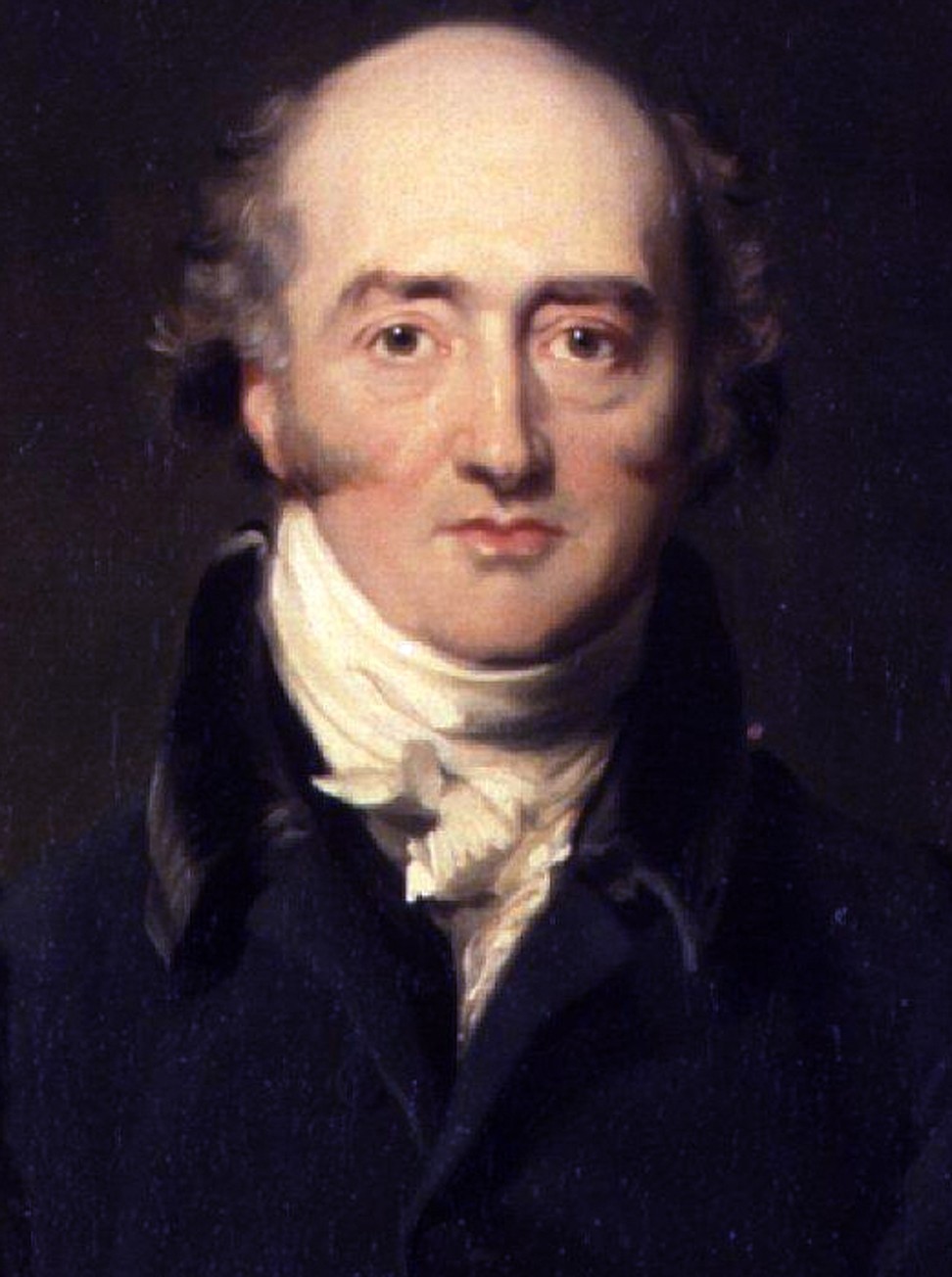
Even that option isn’t a simple one. Under the terms of the 2011 Fixed Term Parliament Act, he would have to ask for a vote of no-confidence in his own government.
The opposition might not even give it, preferring to leave Johnson stewing in his own juice.
He has another option, much less discussed, but not infeasible given Johnson’s record on changing his mind.
He could decide to call another referendum on Brexit, as many Remainers currently seek.
This would enrage the hard-right of his party – and would lead to a haemorrhage of votes to Nigel Farage’s Brexit Party.
Steve Bannon says Brexiteer ‘friend’ Nigel Farage in the running to be UK prime minister
Farage has already offered to join Johnson in an election pact.
But by holding a referendum, he would end the Brexit conundrum once and for all and at least he would remain as prime minister, albeit for a short while, given that he has no majority in parliament.
Former prime minister Harold Wilson once famously said a week is a long time in politics.
For Johnson, last week must have seemed like an eternity as the country holds its breath to see what this week will bring.

